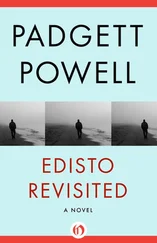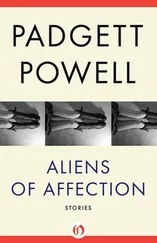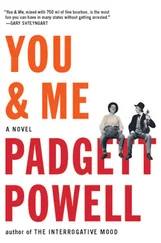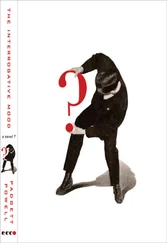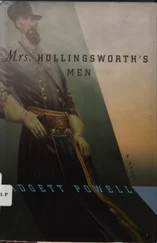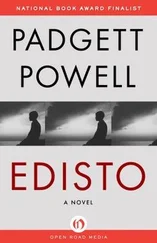“He the only one we showed him to,” Ray said.
“Helen of Troy?” Jane said. “She isn’t a patch on me.” At this Ray snorted. She turned to him. “What? You don’t think my eyes are special? Have you seen the post-partum workout video?”
The woman cut in: “Your eyes are special, but you are not Helen of Troy. No one is. That is what ‘Helen of Troy’ means. Now excuse us. We are about something important here. Your husband here is engaged in a large project doomed to failure, and I want to wrap this up by making sure he knows that.”
Ray was delighted with all of this. His imprudent confession that they had only one candidate for Turner’s New Southerner was apparently to go unpunished, unnoticed even. He was free to fiddle about the table, stealing little looks at Jane, whose eyes indeed suggested fried blue marbles but who did not, all in all, incline him to the ground with the hurt of need. The woman his hostess seemed to have fixed that somehow anyway. For this he was grateful. He had had to throw himself to the ground with the hurt of need nearly all his life, which had once seemed an onerous thing, but which now did not because of the inexplicable sensation he had in the presence of his hostess that he had not been alive all that long—“nearly all his life” seemed somehow a laughably short time. This was a curious sensation to have, sitting there in obvious middle age, wondering if he should have his hair styled as Turner did, or if going to the Barber College and getting these whitewall specials for five dollars from tentative students and looking like he’d been treated for mange with foo-foo water was good enough anymore in the modern world. He had a feeling of being really out of it, there with Turner and Jane and this woman drilling Turner as if she owned him. He wanted suddenly not to be out of it.
“Why does the black man take to the cell phone so hard?” he suddenly asked Turner.
Turner turned to him naturally and began speaking without pause or seeming interruption from whatever he had been saying to the woman. “I’m glad you have asked me that question, Oswald. I can answer it. The black man cannot own the land, we have seen to that. He does not want the water. He once wanted the road, but that really was a wanting of the land. When it was Cadillacs, he managed. Now that it is the BMW, the Black Man’s Wish, he can’t. He now wants the air. From the beginning he wanted the air. This is why he got loud. This is why he carried the ghetto blaster. He virtually invented the sub-woofer. And now he can take command of satellites with the cell phone. He is equal in this respect to the whitest of white men, the astronaut. Were the market share any larger, a man would be fiduciarily negligent unto himself not to market a gold-colored phone exclusively for the brother.”
Ray was impressed at Turner’s smooth delivery. He thought it might be good to learn to speak that way himself, and he certainly would have to consider it if he began wearing his hair in a way that made people expect that kind of sound to come out of a man. He thought he might, what the hell, try it right now: “These ideers might appear in congress with my haircut, sir, as far as blow-dry. I have oft pondered, moreso, moreover, why the brother does not have his own entire industries — a national bank, for example. Prioritizing the brother. For all the fay-the-fair made about his soul food, one does too see a dearth of restaurants in the brother’s name, and certainly there is no national chain. And you would know best the opportunities in mass communications, which it has already brought us wrassling on TV and colored black-and-white movies. I mean, why should not the brother have not merely his own phone but his own network? His own satellites, even?”
Turner looked at him in astonishment. “We have discussed these things in bunkers,” he said. “As part of the planning for the New South. You might be more of the team than I knew. Do you want to be more of the team than I knew?” At this, Turner began weeping. It was a quiet, not very disturbed weeping, which suggested as many positive emotions as negative, Ray thought, rather as women may cry when they are happy fully as often, and often as fully, as when they are sad. Jane seemed also not much bothered by it, and made ready with a napkin as if to hand it to Turner momentarily when he came up for air. Ray fingered the raw spots of his haircut and thought, Really.
He discovered that the hostess had left the room and was now returning with dessert on a tray. It looked very good, especially since he could not recall their having had anything else. It was not that he was particularly hungry, it was merely that this was the first food they had seen, and it looked particularly fetching for that reason alone. He jumped up to help the woman with the tray, saying to her, “Honey child!” This came out of his mouth as oddly as a small toad. The woman took no exception to the toad, in fact winked at him. She glanced at Turner. “We are coming along nicely,” she said. Then to him, “You’re a good boy.”
This compliment went into Ray as true as a pang on the pan of his heart. It had not been said to him in a long, long time. It made him want the woman again, in the bedroom, and soon. “I’m a voodoo chile,” he said.
“That you are,” the woman said. “Now watch this.”
The curtain behind Turner opened. An image began to obtain, not unreminiscent of the way the Star Trek boys beamed into place, or the way closed-circuit TV sometimes grainily gathered itself in the early days of closed circuitry. “The artist Degas could talk any woman he wanted into taking her clothes off and bathing in front of him, apparently,” Ray said.
The woman said, “Shh.”
On the screen Forrest appeared, hair shining, blowing in a wind. Violins blowing a violin wind. Moss blowing in a wind. Sir Walter Scott shook hands with Forrest. A guillotine tumbled by on the wind. “The French were of no help to us,” Forrest said. A rich and resonating accentless male voice-over intoned: “… and the Ku Klux Klan, under Forrest’s orders, having served its purpose, was disbanded in 1872. It wudn’ a black thang.” This Frontline voice saying “wudn’ a black thang” made Ray laugh out loud. Then Forrest said, “Its mission, which was not to terrorize the Negro, was fulfilled.” Forrest appeared to be distracted. Ray had not seen him so before. He was fidgeting with his person, patting about himself as if checking for personal property in his pockets. The marvelous canvas coat was there, in its perfect disorder: dirty and yet spectral, rucked-up and shot and torn and yet whole and sturdy and rugged as armor. Ray wanted a coat like that.
Some kind of commercial intervened in the filmstrip, or whatever it was. Ray had not heard the term “filmstrip” in a long time. He had not actually heard it now. It had been heard, he guessed, by his brain. The commercial was for Ronson lighter fluid. Ray had never seen a commercial, or any other kind of advertisement, for Ronson lighter fluid.
“Ronson lighter fluid exists independently of the exigencies of commerce,” Ray said aloud, and they all told him by quiet gesture to be quiet. “And those yellow cards with the little red flints,” he pressed on, “they don’t have to advertise that.” They shushed him.
Forrest returned, his hair on fire. He was saying something indistinguishable. It sounded like “Someone get the phone,” but Ray thought what he was saying was cleverly designed to sound like indistinguishable talk. That is to say, you could decide what he was saying for yourself and be no more inaccurate than your neighbor, because Forrest was not saying anything at all. They had cleverly effected this phenomenon. It sounded like talk but wasn’t. It was like some poetry.
Читать дальше


